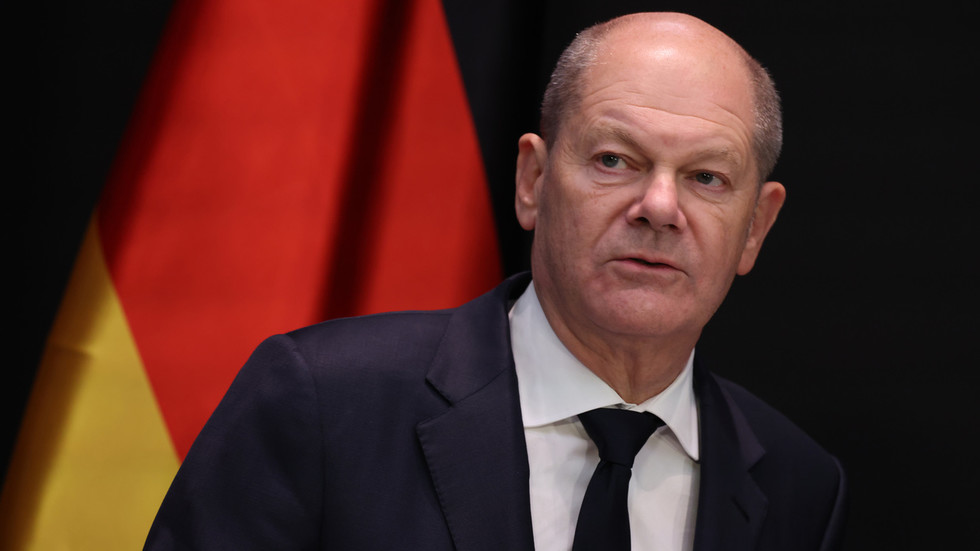Friedrich Merz, the leader of Germany’s largest opposition party, the Christian Democratic Union (CDU), has criticized Chancellor Olaf Scholz’s European policy as a “total failure.” In his recent MerzMail newsletter, he asserted that Scholz has become politically isolated within the European Union (EU). According to Merz, other EU leaders are avoiding engagements with the Chancellor, who he claims is ineffective in diplomacy—either remaining silent during discussions or offering unwelcome lectures. Merz highlighted that in a recent meeting between French President Emmanuel Macron and Polish officials concerning Ukraine, Scholz was conspicuously absent, exemplifying the isolation he claims has resulted from the Chancellor’s ineffective approach.
Merz pointed out that Scholz was notably absent from significant events, such as the reopening of the Notre-Dame Cathedral, which featured key figures including Macron, US President-elect Donald Trump, and Ukrainian leader Volodymyr Zelensky. This absence reflects, as Merz described, a “demonstrative lack of interest” in EU matters, which he believes hinders Germany’s relations with its neighbors. He emphasized that such a stance could be detrimental as Germany navigates through increasingly challenging political waters, especially with growing tensions in the EU and Germany’s role within it.
The political landscape in Germany may be shifting, as the ruling ‘traffic light’ coalition led by Scholz’s Social Democratic Party (SPD) may be facing an uncertain future. Media reports have suggested that potential snap elections could occur as soon as February 23, dependent on the outcome of an impending confidence vote. If Scholz’s minority government cannot secure support, it might lead to a significant political overhaul. Merz’s criticisms could be seen as an attempt to position himself favorably as he prepares for what may become a contentious campaign.
While Merz has advocated for a more assertive stance against Russia, Scholz faces internal and external pressure regarding Germany’s military support for Ukraine. Despite Germany being the second-largest supplier of arms to Ukraine, Merz has argued for allowing the use of German-supplied military equipment, including missiles, to target deeper within Russian territory. This position diverges from Scholz’s cautious approach, particularly as he has consistently rejected the delivery of long-range Taurus missiles, detailing concerns over national security and regional stability.
The tensions in Ukraine and relations with Russia are central to the ongoing debate within Germany, influencing not only military decisions but also broader foreign policy frameworks. Scholz’s responses to the situation have drawn scrutiny, particularly following Ukraine’s use of US-made ATACMS missiles to strike targets in Russian territory. The resulting threats from Russian President Vladimir Putin have further complicated the dialogue around military support, as Moscow has signaled a readiness to retaliate against nations that facilitate such actions.
In conclusion, the growing rift between Merz’s CDU and Scholz’s SPD underscores a pivotal moment in German politics, where foreign policy, military support, and electoral stability intertwine. As Germany navigates its role within the EU and its response to the geopolitical crisis involving Russia and Ukraine, the contrasting perspectives of action and caution reflect broader dilemmas about leadership and national security in an increasingly volatile environment. The upcoming electoral developments could reshape both domestic and foreign policy strategies in light of the criticisms directed at the current administration by opposition leaders like Merz.

